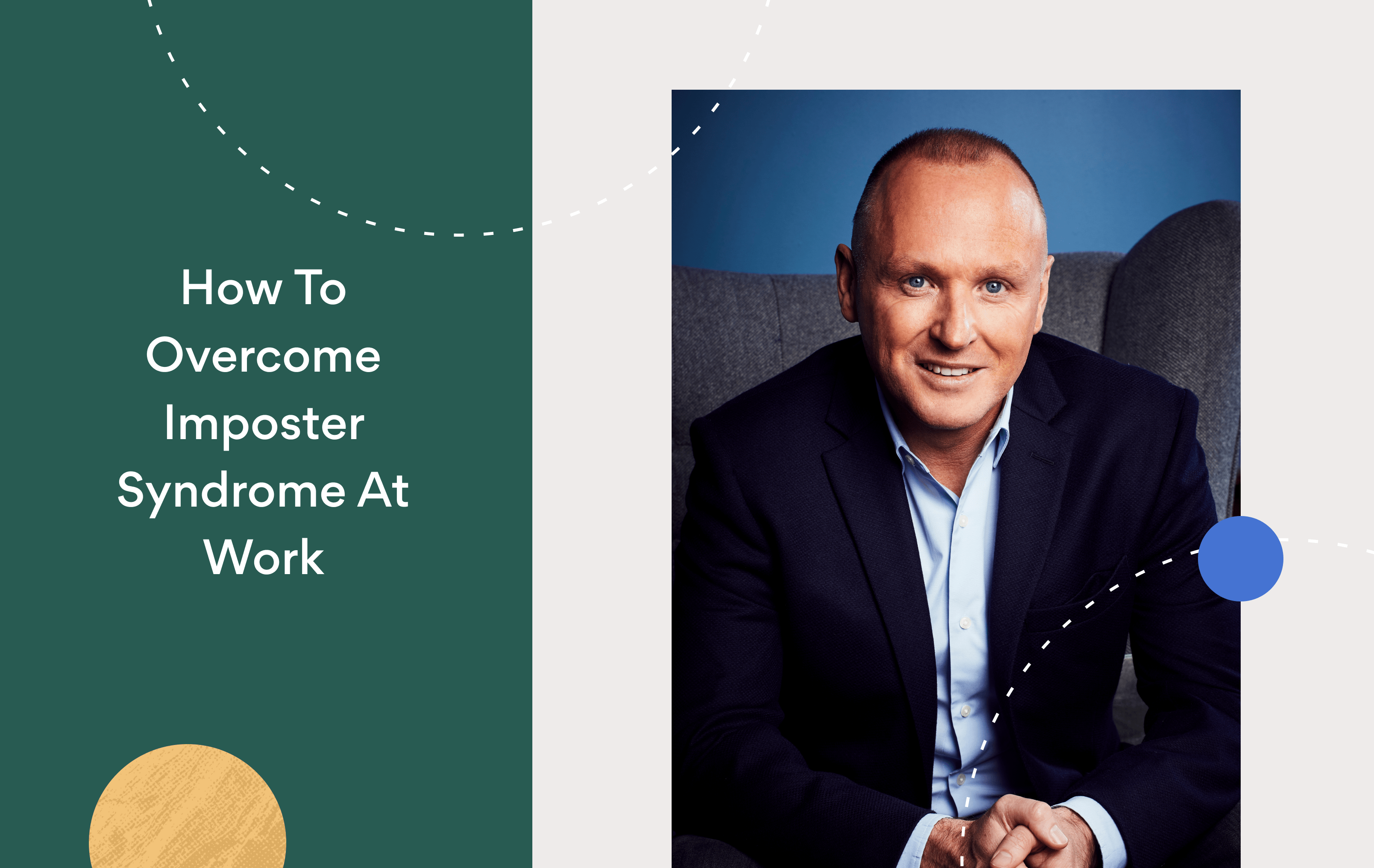How to overcome imposter syndrome at work

Editor’s Note: This is a guest post by Owen O’Kane. Owen is a psychotherapist with over 25 years of experience in physical and mental health and the best-selling author of the books Ten To Zen and Ten Times Happier.
Have you ever had a sinking feeling that you don’t really deserve your achievements? Have you worried that your success has just been down to luck? That you shouldn’t really be in your position, and that one day your colleagues will discover that you’re an imposter?
Whether we know it or not, many of us have experienced imposter syndrome at some point during our career. It can manifest as feelings of self-doubt, self-criticism, or critical comparisons to others that make us feel inadequate and out of place.
Imposter syndrome can be experienced differently by different people. You might feel like an imposter while others will tell themselves they are an imposter. However, if you’ve experienced any feelings like these, where despite a lack of evidence for it, you feel self-doubt, criticism, and inadequacy, you’ve likely experienced imposter syndrome.
But does everyone feel imposter syndrome, and if so, why? Is it something we can overcome? Do we have to live with it? Or can we learn from it?
Who does imposter syndrome impact?
While imposter syndrome is not currently an official diagnosis, the American Psychological Association notes that “psychologists and others acknowledge that it is a very real and specific form of intellectual self-doubt.”
Suzanne Imes, PhD, and Pauline Rose Clance, PhD, first identified imposter syndrome in the 1970s. Imes and Clance found that high achievers were unable to internalise and accept their success, often attributing it to luck rather than ability.
While Clance’s and Imes’ pioneering work has been vital to understanding imposter syndrome, they originally believed it only affected women. We now know that’s far from the truth.
Significant numbers of all workers—men and women, younger and older, more or less senior—experience imposter syndrome. In fact, Asana’s Anatomy of Work Index 2021 found that over two thirds (69%) of all U.K. knowledge workers experienced imposter syndrome in the past year.
It’s a myth that imposter syndrome only affects certain people, in certain circumstances. Instead, it should be understood as patterns of thinking and behaviour that can be experienced by anyone, at any time.
The relationship between career success and imposter syndrome
Feeling nervous before starting a new role is perfectly natural. Imposter syndrome, however, is more consistent. It doesn’t subside two months into the job when you know the ropes. It’s a feeling that rumbles on and fuels self-doubt. It isn’t necessarily something that becomes less acute with career progress or success. In fact, it can be the opposite.
During the lead-up to the release of my first book, I imagined I’d be ecstatic when it launched. After all, I’d achieved something I never thought I would. Instead, I felt terrified on release day. With my book out there, I felt vulnerable and exposed.
Whether it’s securing a deal, getting promoted, or launching a marketing campaign, often it’s moments of success that make us experience imposter syndrome most acutely.
However, while we might recognise those feelings of imposter syndrome in ourselves, we may not recognise them in others. That’s because those who experience imposter syndrome get very good at covering it up. In many ways it is a hidden struggle. It can be maintained internally by cycles of self-doubt, criticism, or even self-sabotage, while on the outside nobody knows.
If you had spoken to me on the day of the book launch, you’d probably have thought I was thrilled. And on the outside, I’d probably have given you little reason to think otherwise.
However, I ultimately achieved that launch because when experiencing imposter syndrome I was able to recognise its voice, and decide not to be governed by it. Recognition is key, as we can only address imposter syndrome if we acknowledge it first.
Techniques for managing imposter syndrome
Once we recognise imposter syndrome as an experience that can impact any one of us, we can interrogate our experiences and even begin to use them as resources to learn and grow from.
Imposter syndrome can often be exacerbated by feelings that success and perfection are linked. That association can stem from many areas: growing up in a family with certain expectations, work environments that are hypercritical of mistakes, or learning about those we admire.
Yet despite this cultural association between success and perfection, it’s unhealthy, and often factually wrong. Success, in reality, is just as reliant on getting things right as it is on learning from mistakes. Without the occasional failure, we don’t have room to grow.
My experience as a psychotherapist has taught me that we need to stop enabling that urge to push down negative emotions and experiences. Instead, both in and outside of the workplace, we need healthier relationships with success, ones that reject the bond between success and perfection, and instead acknowledge how failure can nurture growth.
Rather than spiralling into fear—or burying the feelings deeper—the next time you feel self-doubt, try facing it. Acknowledge the feeling, and then combat it with evidence.
Imposter syndrome is essentially a feeling of not being good enough. But this doesn’t make it a fact. The key is to be able to recognise it as an unhelpful pattern and learn to work with it. In time a sense of “being enough” can emerge. This has to come from within and not be dictated by external successes or achievements.
Then, move forward with courage with the knowledge that you are where you are because of you. If you do make a mistake, that’s natural and it will lead you to learn something new.
The imposter in the room
Speaking up about imposter syndrome isn’t easy. While the majority of us might experience it at some point or another, we often don’t feel ready to talk about it in the workplace.
Building a culture that champions honesty, transparency and a healthy attitude toward failure are all key to ending the epidemic of suffering in silence that imposter syndrome feeds. Just as the broader conversation around wellbeing in the workplace has opened up in recent years, let’s move forward with a healthier attitude toward imposter syndrome.
Rather than hiding our fears, let’s face them. Rather than running from failures, let’s learn from them.
If we manage that, together we can enjoy the feelings of achievement we’ve deserved all along.
For more insights on Imposter Syndrome, check out Asana’s webinar, featuring Owen O’Kane, award-winning author, journalist and broadcaster, Elizabeth Day, and journalist, broadcaster and author of Black Box Thinking, Matthew Syed.

